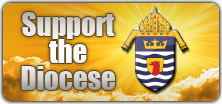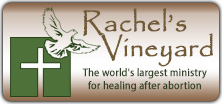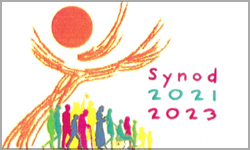“Think of what is above, not of what is on earth.” Colossians 3:2
(Bishop Provost preached the following as a homily for the 18th Sunday of the Year.)
We have been greatly troubled by the occurrences of the last few weeks and months. Terrorist attacks have become more frequent, and violence, it would seem, is becoming a way of life. In a news report I read recently our own State of Louisiana was cited as being one of the most violent. We see only the escalation of violent crimes and the abuse of human dignity. What is one to do?
Of course, we can look for human solutions, more laws, regulations, increased surveillance, and the expansion of law enforcement. But when all is said and done, the most peaceful societies are the ones who exhibit a social cohesiveness in its citizens bound together by a common understanding of right and wrong and a tradition passed down from one generation to the next that understands what makes a society work.
I cannot speak for all societies, but I can speak for a society that claims to be Christian. What is needed is conversion. We simply do not live as we should, and we need to repent, which means changing our lives for the better, laying aside sin, repenting of past error, and choosing a better way of living.
St. Paul in today’s second reading sums it up rather well. “Think of what is above, and not of what is on earth” (Colossians 3:2). Religious faith has become for so many what they do on Sunday and little else. The next step is to secularize the society by purging the very thought of God from public life. Then, you have chaos.
This is the lesson of the Gospel. A rich man has such a bountiful harvest that he must build larger barns to store it all. Then, he makes his mistake. He forgets God. He forgets that he will be held accountable. He says, “[Y]ou have so many good things stored up for many years, rest, eat, drink, be merry!” (Luke 12:19). Does he think of sharing his rich harvest with those less fortunate? No. Does he consider making better use of his goods? No. Instead he hoards and allows his abundance to instill in him an arrogant presumption about the future. In short, he has forgotten God, for God makes Himself known through our conscience and the rich farmer has denied the imperatives of conscience.
However, God exists. What the rich farmer has forgotten is that God will ask him to give an accounting for his behavior. God says, “You fool, this night your life will be demanded of you; and the things you have prepared, to whom will they belong?” (Luke 12:20). Then, Jesus brings home the lesson to us. “Thus will it be for the one who stores up treasure for himself but is not rich in what matters to God” (Luke 12:21).
As one brilliant Catholic scholar once wrote, “It is not true, as is sometimes said, that man cannot organize the world without God. What is true is that, without God, he can ultimately only organize it against man” (Henri de Lubac, The Drama of Atheist Humanism). We can build larger barns to protect our goods from harm, but if we forget God, then where will be our purpose? We can have the most intrusive security measures in place and write even more laws for courts to argue. But if we do all this, as necessary as it might seem, while at the same time forgetting God, then all our efforts will turn against us.
I think Jesus reminds us in the Gospel to look into ourselves. There is little we can do to alter the currents of world affairs, except by prayer. But we can look into ourselves and change our lives, realize God’s presence and ultimately act as devout believers and not as heathens. Then, peace would come to our souls and into our homes. Thus it would be for the one who is rich in what matters to God.
















